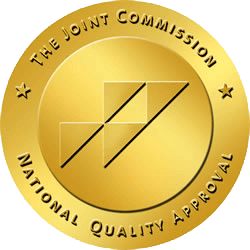Research indicates the human brain continues to develop throughout adolescence. In particular, the area of the brain associated with complex reasoning, thinking before acting and decision-making is not fully developed until the mid-twenties. The development of mental illness during this natural process of brain growth is an unfortunate possibility. This means that there is, at least in part, a biological reason for why teenagers occasionally behave in an impulsive, irrational or even dangerous way. When these otherwise normal differences are combined with symptoms of mental illness or substance abuse, the potential problems are magnified.
Youth in Juvenile Justice Facilities
In 2010, nearly 100,000 adolescents under the age of 18 were serving time in a juvenile residential facility. The facilities vary in both setting and security and include everything from camp-type rehabilitation programs to juvenile prisons. According to a bulletin published by the Office of Juvenile Justice and Delinquency Prevention, a majority of juvenile offenders in residential justice facilities had at least one mental illness. An alarming 27 percent among incarcerated youth had severe mental health disorders, which is two to four times higher than the national rate. Other studies among incarcerated teens indicate that nearly 60 percent of males and over two thirds of females met diagnostic criteria for one or more psychiatric disorders. One half of males and almost one half of females had a substance use disorder, and over 40 percent of males and females met criteria for disruptive behavior disorders. Youth with psychiatric disorders pose a challenge for the juvenile justice system and, after their release, for the larger mental health system.
Inadequate Services for Mental Illness
The juvenile justice system is not equipped to provide adequate mental health services for the large numbers of detainees with psychiatric disorders. The mental health needs of youth in the juvenile justice system have received much attention recently, but there is still a critical absence of studies regarding the effectiveness of treatment and outcomes within the juvenile system. Additional research is critical in order to inform and guide mental health policy for delinquent youth. Understanding the complex relationship among the mental health, child welfare and justice systems will foster the implementation of more adequate services and alternatives.
Sentencing Options Urgently Needed
The lack of sentencing options available to many juvenile court judges is a major obstacle to providing mental health services to youth in need. Many teen offenders are suffering from significant mental health issues and/or substance abuse disorders, yet several states prohibit the courts from ordering a juvenile offender to residential mental health or substance abuse treatment. The judges much choose between long-term incarceration at juvenile facilities, where treatment is inadequate or non-existent, or simply leaving the child on the street. If the juvenile is nonviolent and offending due to mental-health and substance abuse issues, sending them to juvenile rehabilitation is not only ineffective but also harmful. It is equally detrimental to allow them to remain in the community on their own without receiving proper care. This is precisely why sentencing options within the juvenile justice system are urgently needed. Court-mandated treatment for mental illness and substance abuse, without requiring defendant consent, are vital alternatives to incarceration. Reform efforts must place a greater focus on improving access to mental health services for all youth. Creating effective alternatives to traditional residential placement facilities will better serve the needs of youth involved in the juvenile justice system. Proper treatment and rehabilitative services will help many suffering teens to become healthy and productive members of society. To learn more about mental illness and how we can help you overcome it, give us a call at 877-466-0620.


